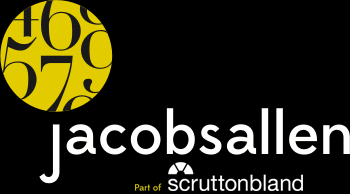Dealing With Tax Enquiries

You have filed your tax return but what happens if HMRC queries your payment?
Routinely taking cash payments, filing late tax returns with major inconsistencies or being the subject of a tip-off could all result in an inspection of your accounts by HM Revenue and Customs.
At Jacobs Allen, we strive to protect our clients by ensuring tax returns are filed promptly and that accounts are fully compliant with the latest legislation.
We want to help our clients avoid the unnecessary stress of an HMRC probe and here we offer some top tips on making sure you don’t raise alarm as well as advice on what to do if the Revenue does come calling.
What can trigger an investigation?
- Suddenly making a large VAT claim
- Declaring an unusually low amount of tax
- Tip-offs – even anonymous ones
- Routinely taking cash payments
- Consistently filing late tax returns with major inconsistencies
- Operating a business in a sector HMRC has specifically targeted
However, in some cases it is simply a case of being randomly selected, so don’t panic if you are selected for an audit.
What are they looking for and how do I avoid an inspection?
As well as looking at inconsistencies with income tax and trying to identify cases of false reporting, HMRC also probe possible cases of underpaid capital gains tax, corporation tax, landfill tax and national insurance contributions.
As a business there is little you can do to prevent a random investigation, keeping accurate records and contemporaneous evidence of transactions or decisions will go a long way to ensuring you are compliant.
Setting money aside on a monthly basis to ensure you can pay your tax bill on time is another good tip and we also recommend you seek our advice if you are unsure about any aspect of your finances at any point during the year.
We offer a comprehensive service in which we can offer advice, file your tax returns on your behalf and update you on any changes which may affect the tax you pay.
To what extent will inspectors probe my accounts?
There are three levels of HMRC inquiry. Firstly, there are random investigations which keep businesses of all sizes on their toes. There’s usually no rhyme or reason to these probes.
In some cases HMRC will be worried about a particular aspect (or aspects) of your accounts and will want more detail about this specific part. Often this will uncover a straightforward mistake or misunderstanding rather than deliberate attempts at tax evasion, such as forgetting to include every source of your savings income on your self-assessment tax return. Or it might simply be a case of providing an explanation to HMRC of the reason for certain entries on the tax return.
While both of these types of inquiry may appear less stressful than full investigations, they should still be treated seriously because if inspectors uncover anything else during their inquiry, they may upscale it to a full inquiry.
A full inquiry looks at cases where HMRC believes there is significant risk of error in the tax return and the Revenue will undertake a comprehensive review of your records.
For businesses, this may include scrutinising the personal financial records of directors or the business owner as well as all business-related records, to the extent that the personal finances are linked to the business.
How does the process work?
HMRC will initiate contact with you or your adviser, usually by letter or phone, with a query over your accounts.
The best advice we can offer at this stage is not to panic, there is nothing to suggest you have done anything wrong as it may just be a random selection.
It is perfectly acceptable at this stage to refer them to us. Our team of chartered accountants and chartered tax advisers are happy to liaise with HMRC on your behalf.
We will find out the severity of the inquiry and report back on what information HMRC requires to resolve its investigation. It is important to control the information that is to be provided, as it is not uncommon for HMRC to request information to which they are not entitled, which if provided could lead to HMRC broadening their enquiry when it is not justified.
It is also important at this stage to be honest and inform HMRC if you have knowingly made a mistake or if there is a reason for what could seem like a discrepancy.
It may be for example that you have a rental property which stood empty for several months or that your tenant did not pay their rent. Your annual income may appear lower than expected and this may have rung alarm bells because HMRC will be unaware of your specific circumstances.
What paperwork should I keep in case HMRC do launch an inquiry?
It is always best to keep everything for seven years when it comes to accounts, as that is a requirement in law.
If you are missing information from your tax return, HMRC may require you to track down replacement copies of any documentation if that is possible.
If you are diligent with your filing, it will make the inquiry process a lot less onerous for you and, in the case of an investigation showing you have overpaid your tax, you are likely to get the funds back more promptly.
What happens next and how long will it take?
The investigation will only fully begin once the Revenue has obtained all of the records it needs from you. In many cases that involve only minor discrepancies there will be a speedy resolution.
However, for more complex cases it may be that you are required to provide further information and HMRC may ask to meet with you. We would advise asking us or your legal representative to attend if this is the case, and to request a pre-agreed agenda. Again, it is important to ensure that HMRC get only that to which they are entitled and that you have a proper understanding of the implications of what you disclose orally at such a meeting.
What penalty can I expect if I have underpaid my tax bill?
If the investigation concludes with agreement that you have underpaid your tax bill, you will have 30 days to pay the outstanding balance.
A penalty will possibly be imposed, and you can expect to pay between 20% and 100% on top of the extra charge due depending on whether it was deemed the underpayment was simply a lack of reasonable care, a deliberate error or a deliberate and concealed error. In cases of lack of reasonable care it is usually possible to have the penalty suspended provided you meet certain conditions.
If HMRC believes you have committed fraud, they may begin criminal proceedings against you. In this case, you need to consult a legal adviser straight away. Unfortunately, it is becoming increasingly common for HMRC to take this route with what in the past they would have still dealt with on a civil rather than criminal level.
Closing a case
The investigation will be formally concluded by a decision notice which will be sent in the form of a letter and which outlines HMRC’s assessment plus any penalty notices and its final stance.
A contract settlement legally binds you to pay the money owed to HMRC, which agrees not to use its powers to chase you for the settlement. If you are unable to pay all of the amount due immediately, there is usually an opportunity to arrive at a ‘time to pay’ arrangement, which is again legally binding.
Contact us today for help making your accounts compliant, or if you are subject to a probe we can offer advice and support throughout the process. Call our Bury St Edmunds office on 01284 704260 .

